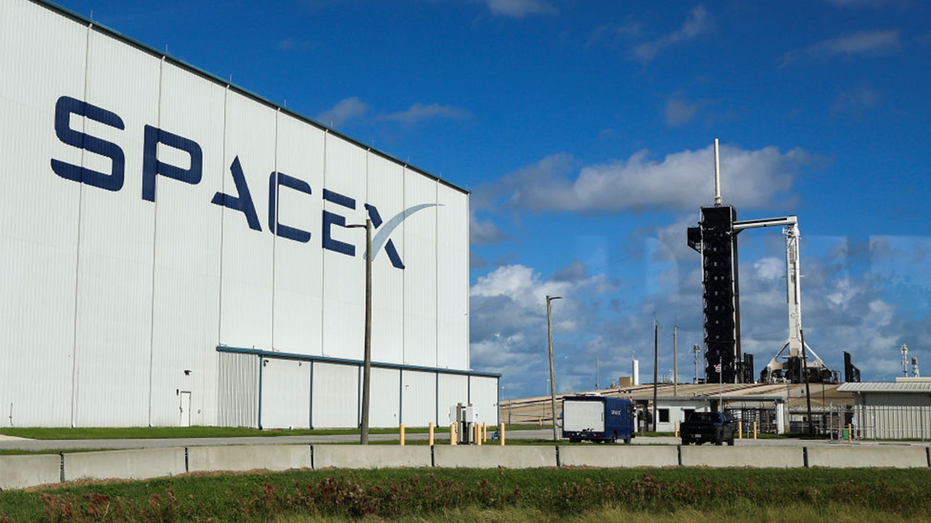Space Race: Virgin Galactic, SpaceX, Blue Origin back at it
Virgin Galactic, SpaceX and Blue Origin have also recently made moves as part of their ongoing space race
Virgin Galactic’s launch on Thursday went off without a hitch, the latest big move from one of the three major billionaire-backed players in the increasingly-hot space race.
SpaceX, run by tech CEO Elon Musk, and Blue Origin, founded by Amazon founder Jeff Bezos, have also had their own developments in the past week. The former transported a privately-chartered crew to the International Space Station, while the latter got a big Moon-related contract with NASA.
FOX Business takes a closer look:
Virgin Galactic
Virgin Galactic on Thursday operated its Unity 25 million, with its spacecraft successfully completing the suborbital flight in what the CEO has previously said would be its "return to space."
The mission – which involved the VMS Eve mothership, the VSS Unity spacecraft, four pilots and four crew members – spanned over 1.25 hours, according to a company press release. The Unity, after detaching from Eve, reached a peak distance from Earth of 54.2 miles and a top speed of Mach 2.94.
GET FOX BUSINESS ON THE GO BY CLICKING HERE
British billionaire Richard Branson, who founded Virgin Galactic and participated in a test flight in 2021, was at the New Mexico launch site for the mission, sharing footage on Twitter of him appearing to watch the spacecraft.
Virgin Galactic had previously said its aim with the Thursday flight was to "make a final assessment of the full spaceflight and astronaut experience" ahead of its commercial flights kicking off late next month. The company’s efforts had faced delays due to upgrades and other factors in the past.
| Ticker | Security | Last | Change | Change % |
|---|---|---|---|---|
| SPCE | VIRGIN GALACTIC HOLDINGS INC. | 2.53 | +0.18 | +7.66% |
CEO Michael Colglazier said earlier in the month the company’s "first commercial flight Galactic 01 is planned for late June and will be a scientific research flight with members of the Italian Air Force." Virgin Galactic, which saw revenues of $392 million and a net loss of $159 million in the first quarter, intends to follow that up with "both civilian astronaut and research customers flying on regular intervals thereafter," he said.

The rocket plane carrying Virgin Galactic founder Richard Branson and other crew members takes off from Spaceport America near Truth or Consequences, New Mexico, Sunday, July 11, 2021. (AP Photo/Andres Leighton) ((AP Photo/Andres Leighton) / AP Newsroom)
With the final test flight under its belt, Virgin Galactic said it will next conduct "post-flight inspections and analysis" to ready itself for its June plans.
SpaceX
A four-person private Axiom Space crew arrived at the International Space Station (ISS) earlier in the week, carried by a SpaceX spaceship and rocket.
The docking of the SpaceX Dragon Crew ship with the ISS took place Monday, according to posts from Musk’s company, Axiom Space and NASA. That came after the Dragon ship had been launched the prior day by a Falcon 9 rocket that blasted off from Florida and landed nearby, tweets from SpaceX said.

SpaceX building (Getty / Getty Images)
The privately-chartered crew, two of whom are Saudi government-sponsored astronauts, have just a few more days left on the ISS as of Friday.
SAUDI ARABIA'S FIRST ASTRONAUTS IN DECADES ROCKET TOWARDS ISS ON PRIVATE CHARTER FLIGHT
It marked the 10th human spaceflight by Dragon, SpaceX noted in a tweet.
Including Sunday’s mission, SpaceX has so far done two of those for Axiom Space. Musk’s company is expected to carry two more Axiom Space crews to the ISS as part of a 2021 deal they have with each other.
SpaceX had another Falcon 9 launch, the Arabsat BADR-8 mission, slated for Wednesday that got postponed to Friday, citing "unfavorable weather" conditions. The company has conducted over 230 launches to date, according to its website.
Blue Origin
Blue Origin was tapped May 19 by NASA for building a lunar lander.
It will do so for NASA’s Artemis V mission with its national partners as part of a NextSTEP-2 Appendix P Sustaining Lunar Development contract it won. The contract, valued at over $3.4 billion, covers the design, development, testing and two demonstration missions with the Washington-based company’s Blue Moon lander, according to a NASA press release.
For those two missions, the first will be an "uncrewed demonstration mission to the lunar surface," NASA said. After that will come a "crewed demo" on the Artemis V mission in 2029.
BEZOS' BLUE ORIGIN NABS $3.4B NASA CONTRACT TO SEND ASTRONAUTS TO THE MOON
The first lunar lander contract had gone to SpaceX in 2021.
NASA said the second contract will "increase competition, reduce costs to taxpayers, support a regular cadence of lunar landings, further invest in the lunar economy, and help NASA achieve its goals on and around the Moon in preparation for future astronaut missions to Mars." The astronauts that Blue Moon is expected to carry to the moon’s surface in 2029 will have scientific and exploratory tasks in the South Pole area, according to the release.

Jeff Bezos, founder of Amazon and space tourism company Blue Origin jogs onto the Blue Origin's New Shepard rocket landing pad to pose for photos at the spaceport near Van Horn, Texas, Tuesday, July 20, 2021. (AP Photo/Tony Gutierrez) (Tony Gutierrez / AP Newsroom)
Blue Origin identified its national partners as Lockheed Martin, Draper, Boeing, Astrobotic and Honeybee Robotics.
The company said it and its partners "are already at work and are excited to be on this journey with NASA."
Daniella Genovese and Andrea Vacchiano contributed to this report.




















